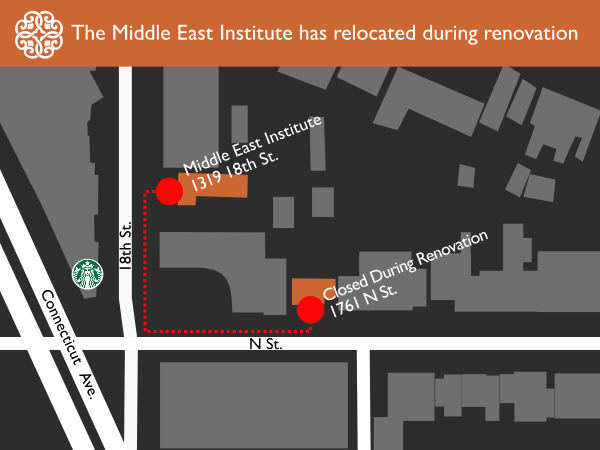Changes in the energy market, new entrants, and conflicting economic and national security interests at the regional and global level have altered the market power of Middle Eastern oil and gas producers. Industry developments and new policies under the Trump administration are likely to lead to the expansion of U.S. shale oil and gas production and increased exports. Russia vies daily with Saudi Arabia to be the world's largest producer, while prices remain far below levels of a few years ago. How are Middle Eastern states coping politically and economically with the challenges of a global energy market in an historic transition?
The Middle East Institute (MEI) was pleased to host Justin Dargin (Univ. of Oxford), Rauf Mammadov (MEI), Jean-François Seznec (MEI), and Brenda Shaffer (Georgetown Univ.) for a discussion of how major Middle Eastern states are navigating far-reaching change in the market and shifting relations between the players.
Molly Williamson (MEI) moderated the discussion.
Participant Biographies:
Justin Dargin
MENA Scholar, The University of Oxford
Justin Dargin is the MENA Energy Scholar in the School of Geography and the Environment at the University of Oxford. He is a leading energy expert specializing in Middle East geopolitics, emergent carbon markets, and regional industrialization. Dargin is also a specialist in international law and energy law, with a focus in carbon trading, the global oil and gas market, and the legal framework surrounding the Gulf energy sector. Dargin has advised major energy companies, governments, and multilateral organizations on strategic investment and geopolitical issues in the energy sector. He has published over a hundred book chapters and articles in such publications as The Middle East Economic Survey, The Oil & Gas Journal, The Oxford Institute of Energy Studies, and for the Gulf Research Centre. His has appeared on Al Jazeera and Russia Today and in The New York Times and Al Hurra, among other major global media.
Rauf Mammadov
MEI Scholar
Rauf Mammadov is a resident scholar on energy policy at The Middle East Institute. He focuses on issues of energy security, global energy industry trends, and energy relations between the Middle East, Central Asia, and South Caucasus. His research emphasis is on the post-Soviet countries of Eurasia. Prior to joining MEI, Mammadov held top administrative positions for the State Oil Company of Azerbaijan Republic (SOCAR) from 2006 to 2016. Beginning in 2012, he established and managed the United States Representative Office of SOCAR in Washington D.C.
Jean-François Seznec
MEI Scholar
Jean-François Seznec’s focus is on the growth of energy-based industries such as petrochemicals, aluminum, and steel in the Arabian-Persian Gulf region. He is an adjunct professor at both the McDonough School of Business at Georgetown University and the Johns Hopkins' School of Advanced International Studies. He has 25 years of experience in international banking and finance, ten of which were spent in the Middle East. Seznec has provided extensive consulting services to Fortune 100 and other companies, with a focus on industrial policy in the Gulf states and other Middle Eastern countries.
Brenda Shaffer
Senior Fellow, Atlantic Council Global Energy Center; visiting professor, Georgetown University
Prof. Brenda Shaffer is an expert on international energy trends, the link between energy trade and foreign policy, the politics of the South Caucasus, and Caspian and Eastern Mediterranean energy resources. She has been an advisor to Israel’s Office of the Prime Minister, ministry of energy and water, and “Zemach Committee,” which proposed natural gas policy. She has given expert testimony to committees of the U.S. Congress and to the European Parliament. Shaffer is the author of several books, and her opinion columns have appeared in The Wall Street Journal, The Washington Post, and The Boston Globe; CNBC interviews her regularly on developments in the global oil market.
Molly Williamson, moderator
MEI Scholar
Molly Williamson speaks extensively on U.S. foreign policy as a scholar with the Middle East Institute, a consultant, lecturer at Johns Hopkins University, and a member of the boards of the American Foreign Service Association and the American Academy of Diplomacy. She achieved the rank of Career Minister in the U.S. Foreign Service and held senior executive positions in four Cabinet departments. Her postings included senior foreign policy advisor to the Secretary of Energy, Deputy Assistant Secretary in the Departments of State, Defense, and Commerce, U.S. interim ambassador to Bahrain, and Chief of Mission and Consul General in Jerusalem during the Madrid Peace process that culminated in the Oslo Accords. Williamson was recognized during her government career with two Presidential Service Awards as well as awards from the Secretaries of State, Commerce, Defense, and Energy.













